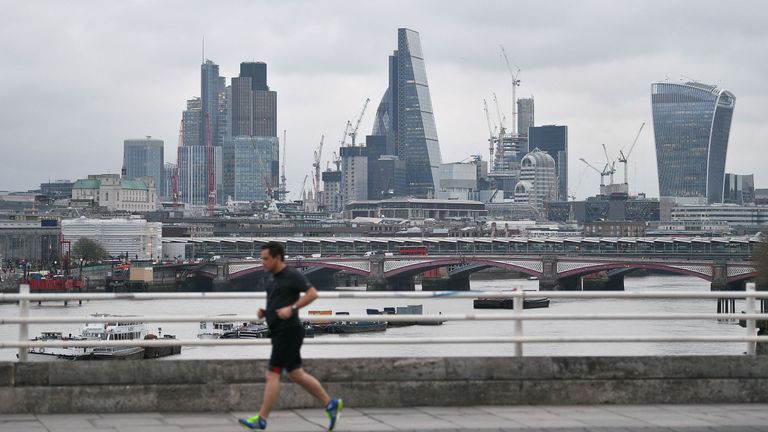Can we really afford to have more bank holidays?
Jeremy Corbyn insists workers "deserve a break", but there are conflicting theories about how much his policy would cost.
Monday 24 April 2017 11:58, UK
The rhythms of our working week are so embroidered in the tapestry of our lives that it's easy to imagine they are immortal.
From our earliest school days to when we collect our pension most of us work five days a week for about eight hours a day and have the weekends to ourselves (not journalists - though I doubt many of you will feel sorry for us).
It wasn't always the case. It's easy to forget now but our work hours and what days of the week we work were some of the earliest priorities of what might loosely be called the Labour movement.
From the demand of the Independent Labour Party for a two-day weekend, to Chartist radicals calling for a 10 and then eight-hour working week, statutory limits of when we work and for how long were for a long time a principal occupation of the Left.
And so Jeremy Corbyn and Labour are in many ways tapping into a rich seam with their first policy of the election campaign, arguing that there should be four more bank holidays, one for each of the patron saints of the nations of the UK: St George, St Andrew, St David and St Patrick. Much needed, Labour says, given currently the UK has fewer bank holidays than most other industrialised countries.
Their argument runs further. In an increasingly globalised world, where our employers expect ever more of us and our phones and tablets tether us to our workplaces even when we're at home, a few extra bank holidays would be some just compensation.
But what about the cost? At a time of renewed economic uncertainty, can we really afford more time off? One study suggested that each bank holiday costs the UK over £2bn through lost economic output. So if these four new ones appeared it would cost the UK economy in excess of £10bn - or to put it another way about a fifth of the country's huge £50bn deficit.
The Tories have already begun to ridicule the policy, a Conservative source telling Sky News: "The British economy would be on permanent holiday if Corbyn got near Downing Street."
But there could be economic benefits too. For a start how do you begin to actually account for the cost? What about all of the extra money spent on tourism and DIY on those extra days off?
Most of the UK economy is services based - services lost one day can usually just be transferred to the next, unlike say manufacturing where output lost is usually irrecoverable.
For this reason one government report estimated extra bank holidays could benefit the economy to the tune of an extra £1bn a piece. And maybe, it could help with our chronic productivity problem - more days off means we do more in the days we're at work.
Whatever you think about the merits or otherwise of the policy, it tells you something about the Corbyn camp's approach to this election.
As one Labour source told me: "We have nothing to lose." They reckon the time is ripe for radicalism. After all, their thinking goes, right-wing populists around the world have got elected by ostensibly giving the people what they want, against the advice of experts. Why couldn't a radical populism of the left do the same?
It's an interesting gambit. If it doesn't work, with a 25-point gap in the polls, one way or the other, many Labour MPs will find themselves with a lot more holiday time after polling day.





